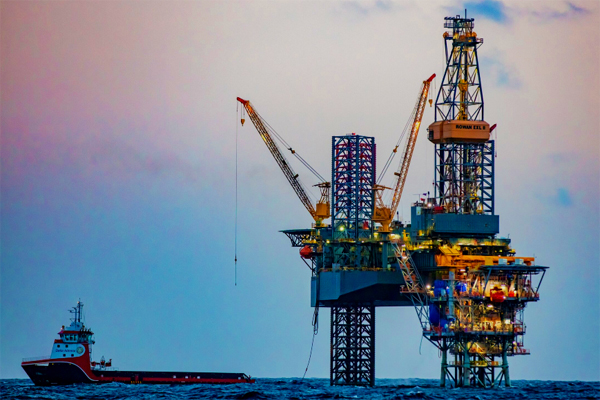- Three deepwater exploration blocks awarded to BP-Shell consortium
- Agreement with Venezuela to use Trinidad’s LNG infrastructure for Dragon gas

Angeles Rodriguez, Platts S&P Global
PORT SPAIN
EnergiesNet.com 10 02 2023
Trinidad’s energy ministry awarded three deepwater blocks for hydrocarbon production off the country’s east cost on Sept. 26 to a consortium comprising oil majors BP and Shell, BP said in a statement on the same date.
The companies were awarded blocks 25a, 25b and 27, which the government put on offer in a bidding round that closed last year. Negotiations over a bid the consortium submitted for block 23b are still ongoing, BP said.
Contract negotiations with the consortium were “complex” in part due to the location of the awarded blocks and “the nature of the expected exploration and possible future production,” the energy ministry said in a Sept. 21 release.
Initial exploration in some portions of Trinidad’s deepwater areas has confirmed the existence of reserves of commercial natural gas, according to technical information the Trinidadian government released as part of the bidding process.
However, it could take years for the start of production in the licensed deepwater blocks. Based on the latest version of Trinidad’s master plan, released in 2015, it would take at least three years for production to begin after a final investment decision is made. Total time from when a field discovery is made to the start of production is expected to be around eight years.
Venezuela agreement
The second announcement involved the signing of a profit-sharing agreement with Venezuela on Sept. 20 to export gas from the Dragon field using Trinidad’s LNG infrastructure. The agreement entails the joint exploration of Dragon — estimated to contain up to 4.2 trillion cubic feet of gas and located near the maritime border with Trinidad — with its owner Venezuelan state-owned oil company PDVSA.
This agreement, in the works since 2016, was put on hold due to US economic sanctions on Venezuela, requiring countries to seek permission from US authorities to engage in business with PDVSA. Trinidad obtained a waiver from the Office of Foreign Assets Control (OFAC) earlier this year to allow for the development of Dragon. Continued tensions with Venezuela and the US presidential elections in 2024 could impact the duration or terms of the waiver.
Nonetheless, Venezuelan authorities are also seeking a deal over the combined Loran-Manatee field, which straddles the maritime border between Trinidad and Venezuela, President Nicolas Maduro said at the deal’s signing.
Development of the Shell-operated Manatee gas field, which is in Trinidadian waters, is awaiting final investment decision (FID). The company amended its domestic gas sales contract with Trinidad’s national gas company NGC to incorporate a share of Manatee’s gas volumes once the project is sanctioned, NGC said in a Sept. 22 release. While this could be an indication that the project is close to receiving approval, no official confirmation has been made.
Shell did not immediately respond to a request for comment.
Manatee has estimated recoverable gas reserves of 1.871 Tcf. First gas from the project is projected for 2028, energy minister Stuart Young said in June.
Trinidad is the second largest LNG exporter in the Americas, having exported 6.5 million mt of LNG so far this year, according to S&P Global Commodity Insights data.
The country’s sole LNG producer, Atlantic LNG, exports LNG through its 15 million mt/year Point Fortin facility. Train 1 of the four-train facility has been suspended since 2020 due to a lack of gas supply.
Atlantic LNG is awaiting ownership restructuring, which would allow it to buy gas from producers outside of the joint venture owning the plant.
Atlantic LNG has not confirmed reports from earlier this year that Train 1 would resume production by 2027.
The company did not respond to a request for comment.
spglobal.com 09 28 2023







